Tod Dockstader
March 20, 1932 – February 27, 2015

“Tod Dockstader was a pioneer, a unique and visionary composer whose personal take on musique concrète and electronic music was extraordinarily visceral, setting him apart from the academic composers who ruled that realm in the late 1950’s. In the summer of 1968 while on a summer National Science Foundation residency, I was DJ’ing a late-night slot at WRCT, the radio station of Carnegie-Mellon University in Pittsburgh. The station’s library was well-stocked with current jazz, rock, and contemporary music- it was a fantastic time for new music. Searching the stacks for material, I was struck by the mysterious and homespun look of Owl Records and their releases of Tod Dockstader’s music. On listening I was blown away by the incredible timbres, relentless pace, and rhythmic urgency. I frequently played his pieces Apocalypse and Quatermass on my show and they burned their way into my shortlist of favorite electronic music. He was an unsung master who will hopefully receive long overdue honors.”
– Elliott Sharp
“Trailblazing.”
– Wired
“Dockstader, like Luc Ferrari, had a background in film editing and sound, and he composed in the arena of what now is called Electroacoustic Music–electronic sources and natural sounds, often still recognizable–all were fair game for his work. His emphasis was on ‘composing,’ the careful arrangement of sounds, whatever their novelty, into structures that were satisfying and effective from a narrative point of listening. Working with limited means, he completed a substantial body of work, originally issued on the Owl label, with distinctive black and white cover art and minimal restrained graphic titling, that hypnotized a generation of younger composers who sought out his records with great relish.”
– Charles Amirkhanian
“One of the giants in the field”
– The Washington Post
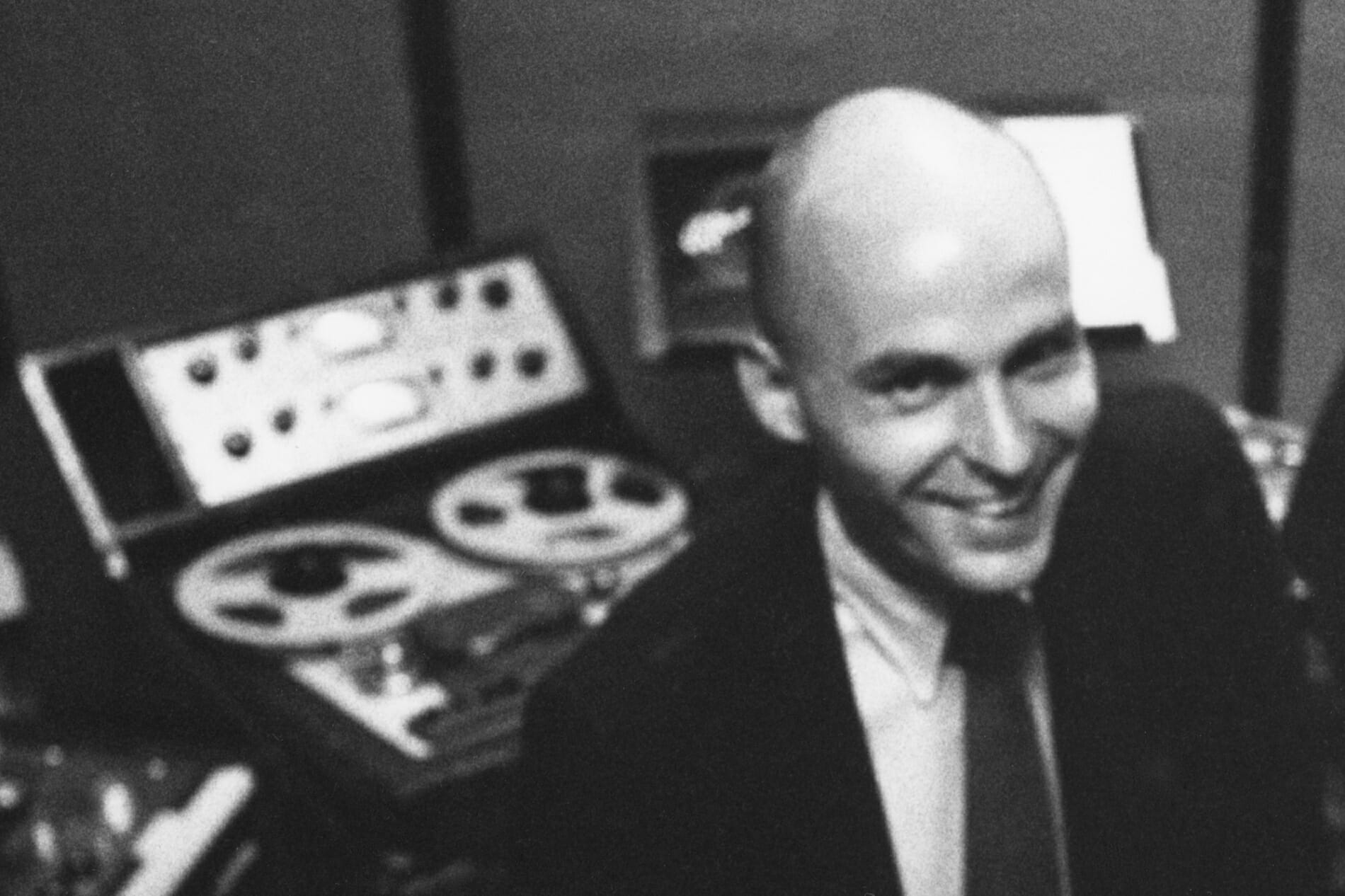
“What a revelation and courageous inspiration – to open one’s ears to the music of this man, Tod Dockstader, one of those towering American Originals like Harry Partch, Conlon Nancarrow, Raymond Scott, who while working in relative obscurity defined his own sonic landscape, detailed and infinite, solitary and expansive, and people it with the fruits of his imagination, technique and inventions. As the imposed weight of artifice and theory collapses one bankrupt European narrative of the history of 20th century music, pillars of invention like Tod Dockstader stand tall in the rubble.”
– Bruce Odland
“Tod Dockstader belongs in the select company of Varèse, Stockhausen, Luening, Schaeffer, Subotnick, and the other pioneers of electronic music or musique concrète. His achievement is on a par with the best in his field.”
– Stereophile
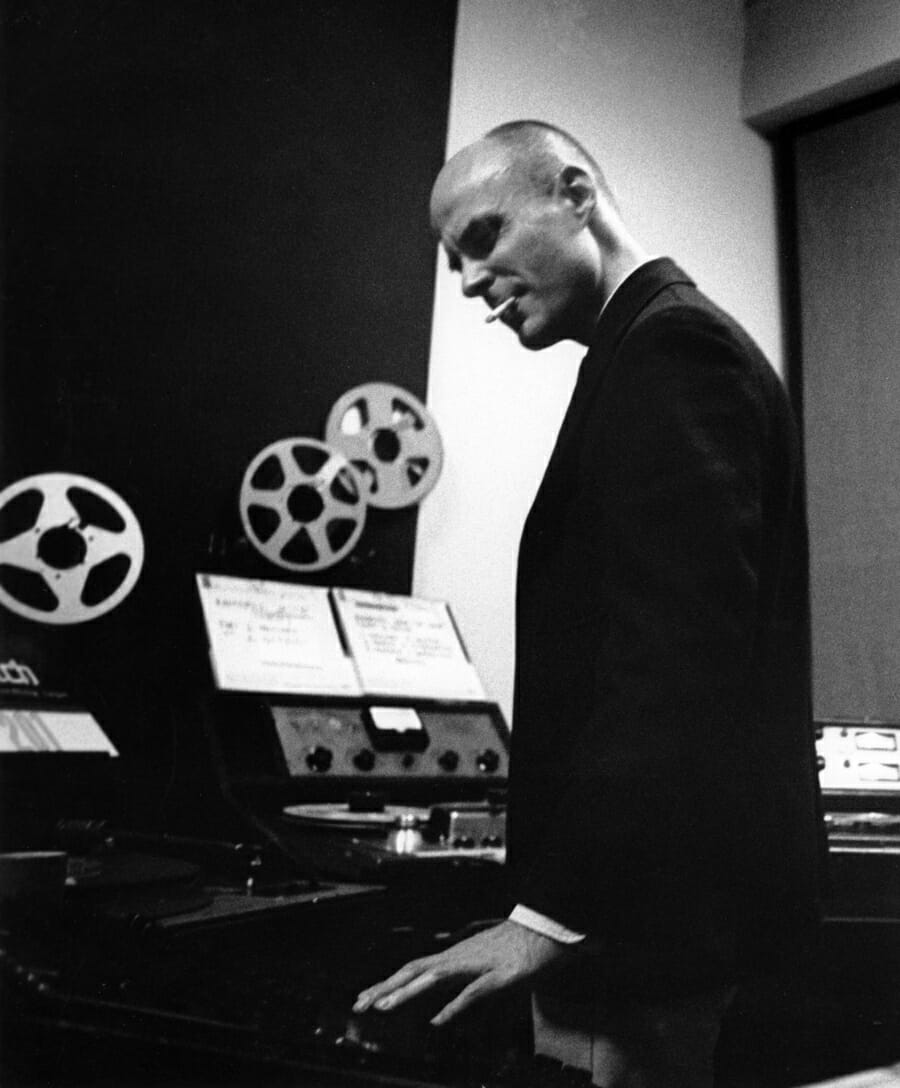
“In 1967 I was a senior at Alliance High School. Alliance was a sleepy Ohio town where nothing happened, including record stores. Occasionally my bandmates and I would make the trip to Cleveland to visit some “real” record shops, and in one of these I discovered the artsy-looking Dockstader releases on Owl vinyl. Back then a clerk would play albums customers were interested in, and when I heard the mesmerizing tonalities of Water Music and Luna Park coming out of the store’s speakers I was absolutely floored. By then I was beginning to be aware of Stockhausen, Henry, Ferrari, Luening, et al, but it was Tod’s music that really spoke to me: its aesthetic and technical mastery without a whiff of pretense, the totally out-of-this-world sounds which yet didn’t conjure up sci-fi movies or remind one of “sound effects” records. Over the years I went through three or four copies of each of the albums, wearing the grooves out and intimidating everyone I knew by blasting Quatermass at them. I myself took the plunge into electronic music in 1980 when the “home studio” was becoming a reality; by 1988 I had my first album released by ReR records and I dedicated it “to Tod Dockstader, wherever you are.” Some years later Tom Steenland was good enough to give me the reclusive Mr. Dockstader’s address and we began communicating via (snail) mail. I was one of those who nudged Tod into computers, and eventually he was like a landbound fish discovering water, feverishly cranking out the most outlandish sound textures. Over the following couple of years we emailed each other nearly every day and exchanged CDs of our audio explorations, eventually resulting in our two albums on ReR, Pond and Bijou. Tod was a joy to work with, a man full of humility and good cheer. I sure will miss him.”
– David Lee Myers
“Essential for anyone interested in electronic music.”
– Option
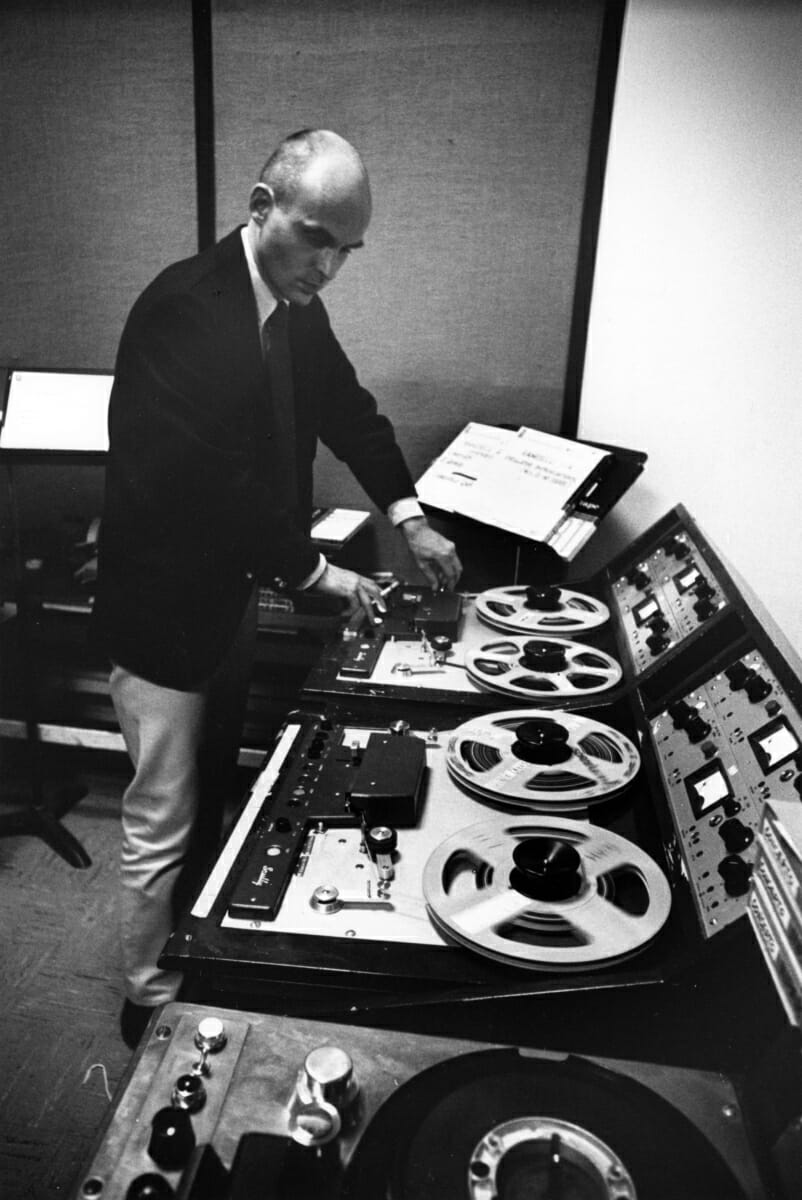
“I was already working with tape in a concrète way when I entered college in ’81, and actively listening to whatever I could get my hands in that style. But it wasn’t until Barney Childs laid a copy of Tod Dockstader’s LP on me that I heard where the medium could really go. His virtuosic work blotted out all the tape and electronic music I had heard up to that point: His was the bar to which all else was measured (at least in my mind) for many years. May his work continue to inspire and stretch ears for decades to come.”
– Gino Robair
“Along with Stockhausen, Henry and Varese, Tod Dockstader should be recognized, not merely regarded, as one of the great figures of musique concrete composition. His ‘organized sound’ pieces from the 1960s are undoubtedly among the most radical and important ever conceived.”
– Dusted
“A pioneer in electroacoustic music, Tod Dockstader’s contributions to the field are numerous, extremely varied, and extraordinary. His long and prestigious career has come to an end, but his music thrives, inspiring generations to come.”
– Maggi Payne
“Tod Dockstader was a major influence upon me. I discovered some of the Owl Records in the early 70s when I was still in high school.The music was a revelation. What was equally important is that Dockstader was using the tape studio as his instrument or as his own personal orchestra. This DIY approach was a inspiration to me.”
– Paul Dolden
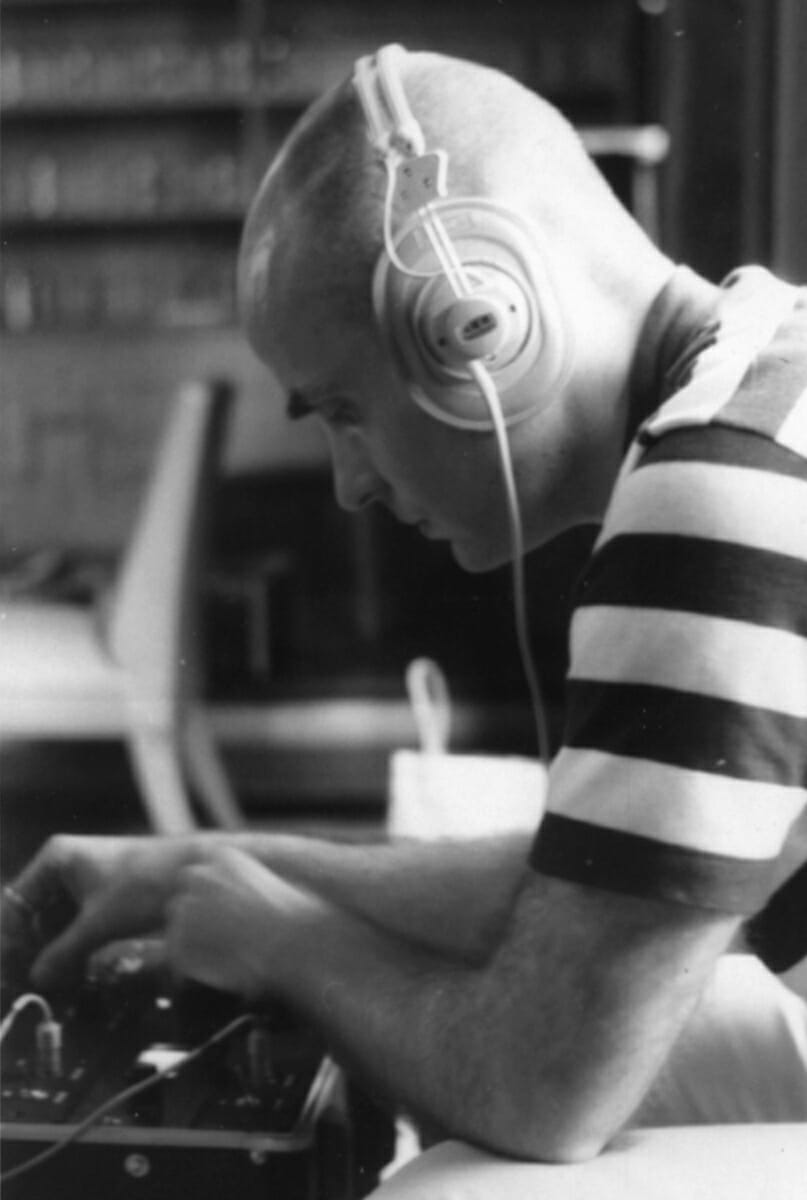
“Somewhere in the early 90s I got two CDs released by Starkland, re-issuing works by one Tod Dockstader, of whom I never heard before. This sounded like something that was made by an academically trained composer, yet the liner notes told me Dockstader’s work was rejected the official academic music world, and that he had to earn a living somewhere else editing music for cartoons and such like. I couldn’t believe it, as his music sounded great: well composed, intense and fully formed. How could his official peers reject this guy? This happened in a time when I started to investigate music more and more, learning about the distinction between academic composers and those who were not, and realized that a formal training is perhaps not necessary at all (but I could have learned that lesson from punk before). Dockstader’s music was a confirmation of that non-conformist attitude and showed the way of many others that followed his footsteps. Just do whatever you want to do and do it well, and time will set the record straight. I was blown away when his three CD set Aerial was released: the sheer beauty of the simplest of sound sources – shortwave radio – composed into a three hour work of stunning quality. It was a highly refined masterpiece. Sad to know there isn’t any new music coming from him.”
– Frans de Waard
“The obsessive care with which Starkland have compiled these extraordinary recordings should ensure that Dockstader will be remembered as the innovative, visionary figure he undoubtedly was.”
– Wired
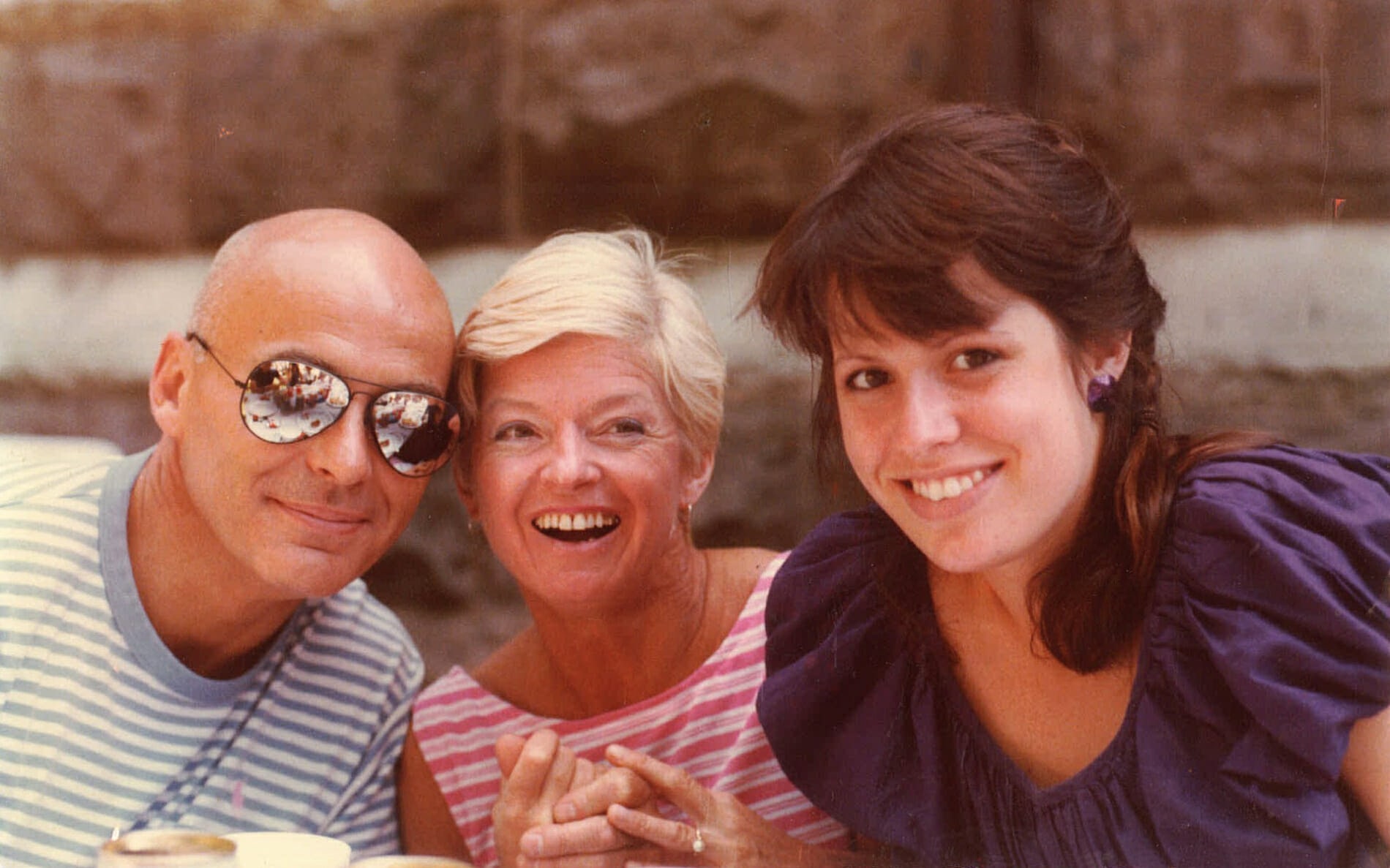
“Very sad to hear about the passing of electronic music composer Tod Dockstader. To me he was one of the greatest. I’ll place him above all of the famous names – Karlheinz Stockhausen or Pierre Henry never made music that came close to the pure genius of Dockstader’s work in the 1960s. They may have preceded him, and may have better secured their places in history books, but they can not match the level of intensity, inventiveness and pure sonic joy found in Dockstader’s music. Along with Bernard Parmegiani and Roland Kayn he’s the electronic composer whose records I’ve listened to the most. I’ll never tire of works like Luna Park, Water Music or Quatermass. As I understand it he gave up on making music for a long time not being accepted into the established institutions because of his lack of academic experience. We can only imagine the music he would have created had someone given him due credit when he needed it. He did get some level of recognition later in life, with his work being reissued and available to a new generation of more attentive ears. Dockstader also made new works which are really good – a transition from old analog to new digital methods few of his generation mastered with the same elegance. The monolithic Aerial became his swan song. Thank you for the music.”
– Lasse Marhaug
“I can’t say I’m in shock, per se, as those in the know all knew how bad things had gotten for him. And it is indeed a dirty shame that he wasn’t able to bounce back any better, to at least remember a fleeting inkling of his own former, albeit understated greatness. I guess some small part of me–perhaps a vestige of the part that, as a callow undergrad futzing around with envelope filters, heard Eight Electronic Pieces some three decades after it was first released on Smithsonian Folkways and just stopped–thought he’d snap out of it. Still, it’s hard to fathom any sound world where Tod Dockstader no longer breathes. The last time I remember consciously hearing from him, well, suffice it to say it was purely incidental. Thursday, September 5, 2013. 11:28 p.m. EST. Bob Bellerue had cued up the Starkland reissue of Two Moons of Quatermass in between sets at ISSUE Project Room. The kids down from Williamsburg to hear Richard Youngs seemed genuinely puzzled. Hell, I even saw the lankier one fetch his iPhone from his back pocket, swipe right and hold it to the sky. No way, I thought to myself devilishly, would Shazam get this one….”
– Logan K. Young
“I was sorry to hear about the passing of Tod Dockstader; I enjoyed his sonic invention.”
– Jean-Claude Risset
“RIP Tod Dockstader, a key figure in the history of electronic music. I was lucky to interview him for Wired in 2012.”
– Geeta Dayal
“Tod Dockstader was that rarity, a master of tape technology, ears and scissors, whose sound constructions were led not by the aesthetic of the academy or a reverence for systems but by a profound affinity with the minutiae of sound and disregard for ‘schools.'”
– Chris Cutler
“Dockstader’s output was a kind of crowning tribute to the composer-technicians of the early fifties, and in spite of the popular penchant for electronic novelty sounds of the late sixties, he produced a music that was fresh and free of the clichés of the medium.”
– Recordings






